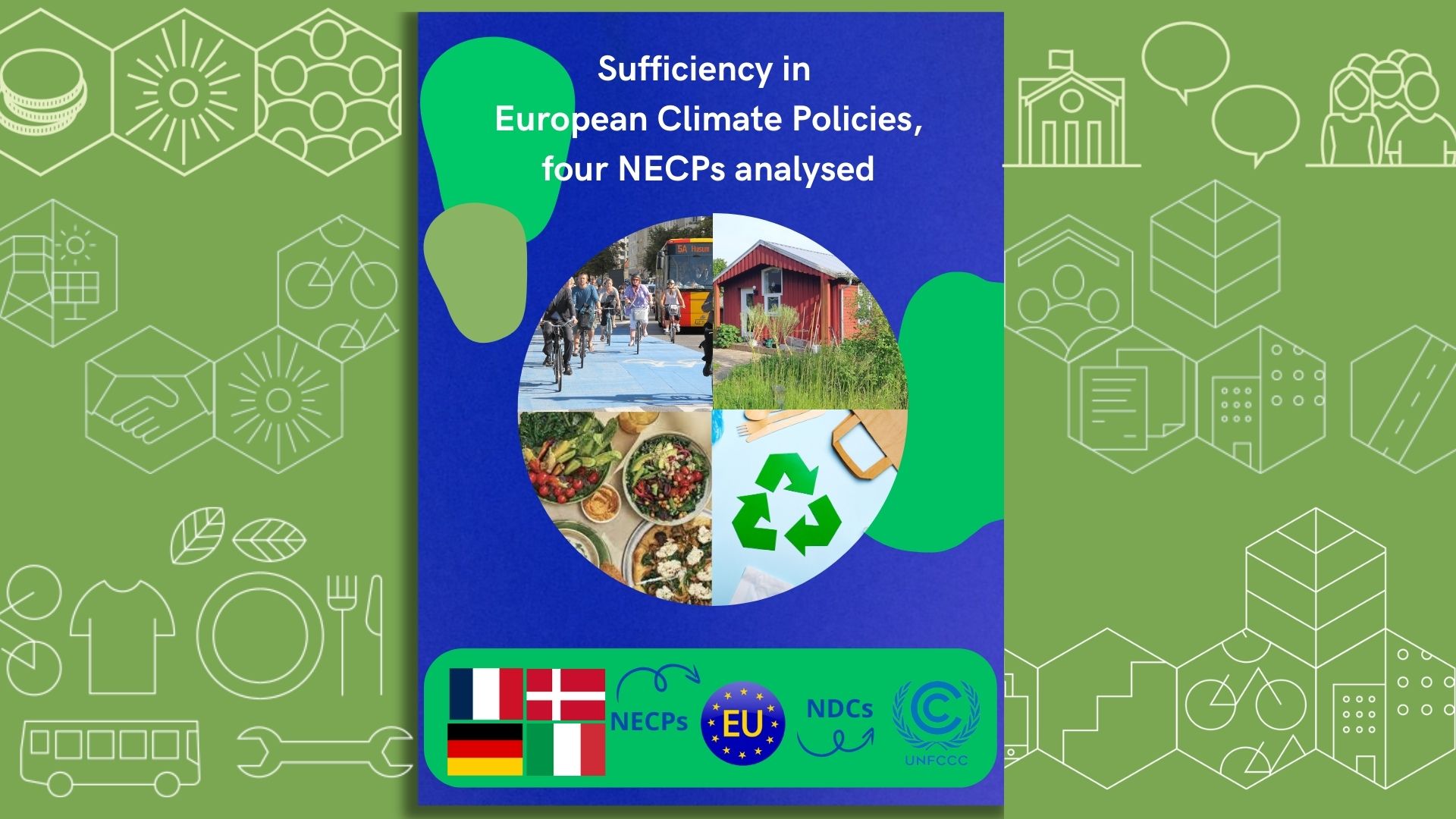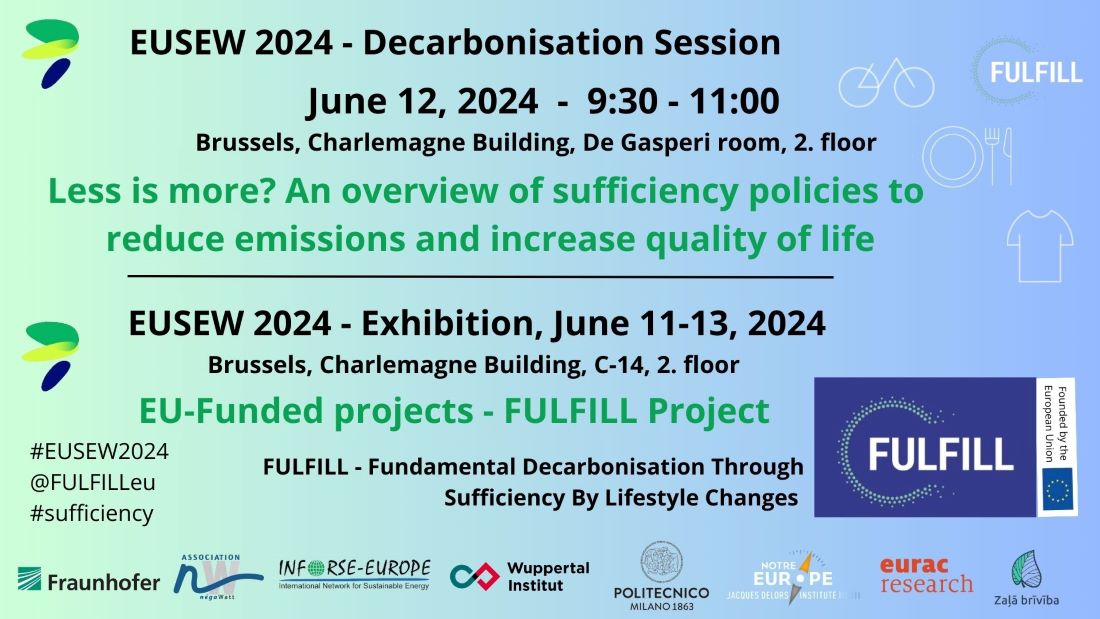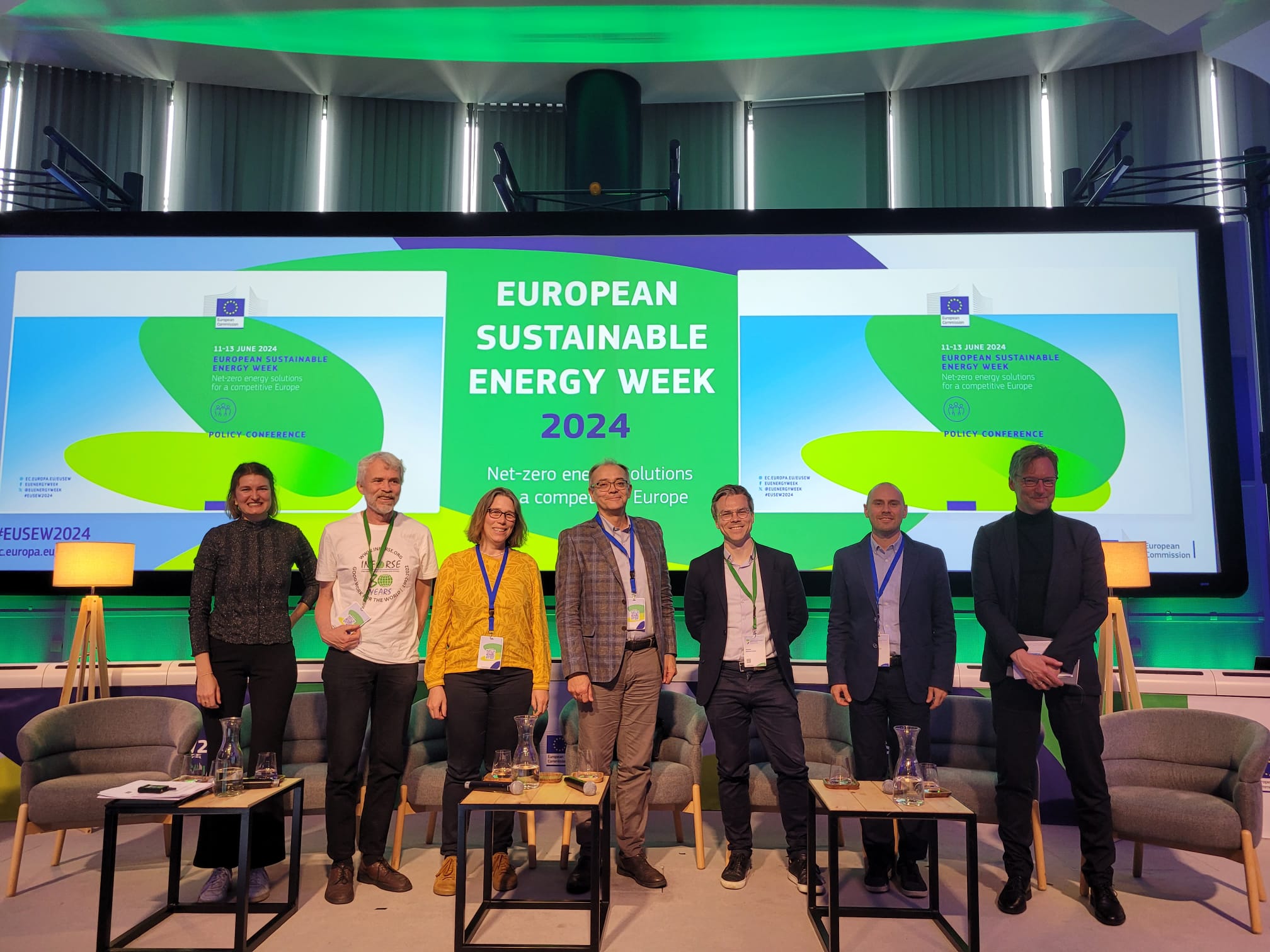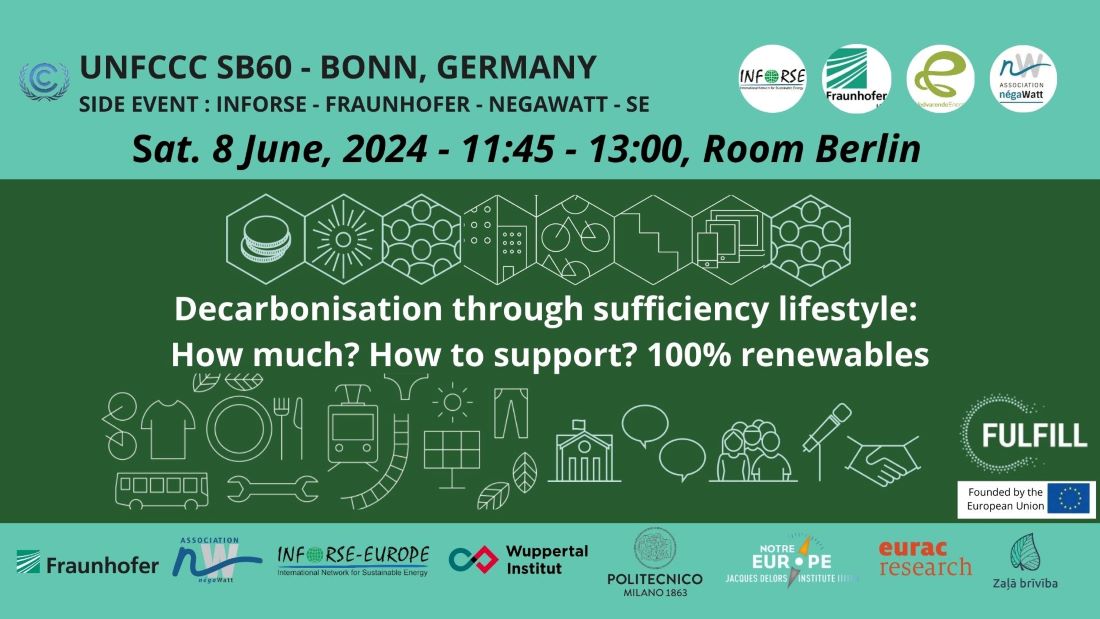| About Us | Contact Us | Member Database | Contact Database | Support Us |
| The
3-year social science research project called FULFILL - "Fundamental
Decarbonisation Through Sufficiency By Lifestyle Changes" has
started in
October, 2021. The Project is a cooperation among organisations
of Fraunhofer Institute ISI (coordinator) and Wuppertal
Institut in Germany, EURAC and POLIMI in Italy, negaWATT
and Jacques
Delors Institute in France, Green
Liberty in Latvia, and INFORSE-Europe in Denmark. The FULFILL Project's website: fulfill-sufficiency.eu and Twitter: twitter.com/fulfilleu |
||||||||||||||||
The main objective of the Project is to study lifestyle changes as part of European decarbonisation pathways that lead to the fulfillment of the Paris Agreement goals by using the concept of sufficiency as a guiding principle. |
||||||||||||||||
To
achieve this overarching project's aim, the FULFILL project has
the following objectives:
- Characterize the concept of lifestyle change based on the current literature and extend this characterization by combining it with the sufficiency concept. - Develop a measurable and quantifiable definition of sufficiency to make it applicable as a concept to study lifestyle changes in relation to decarbonisation strategies. - Generate a multidisciplinary systemic research approach that integrates micro, meso, and macro level perspectives on lifestyle changes. - Study lifestyle change mechanisms empirically through social science and humanities (SSH) research methods on the micro (individual, household) and the meso (community, municipal) level. - Achieve an in-depth analysis of existing and potential sufficiency lifestyles, their intended and unintended consequences (incl. rebound and spillover effects), enablers and barriers (incl. existing structures) as well as impacts (incl. on health and gender) on the micro level across diverse cultural, political, and economic conditions in Europe and in comparison to India as a country with a very large population and very different lifestyles. - Assess the dynamics of lifestyle change mechanisms towards sufficiency on the meso level by looking into current activities of municipalities, selected communities and initiatives as well as analysing their level of success and persisting limitations in contributing to decarbonisation. - Integrate the findings from the micro and meso level into a macro, i.e. national and European, level assessment of the systemic implications of sufficiency lifestyles and explore diffusion pathways. - Implement a qualitative and quantitative assessment of the systemic impact of sufficiency lifestyles which in addition to a contribution to decarbonisation and economic impacts includes the analysis of further intended and unintended consequences (incl. rebound and spillover effects) as well as broader societal impacts (incl. on health and gender). - Combine the research findings with citizen science activities to develop sound and valid policy recommendations contributing to the development of promising pathways towards lifestyle change. |
||||||||||||||||
| Activity highlights: | ||||||||||||||||
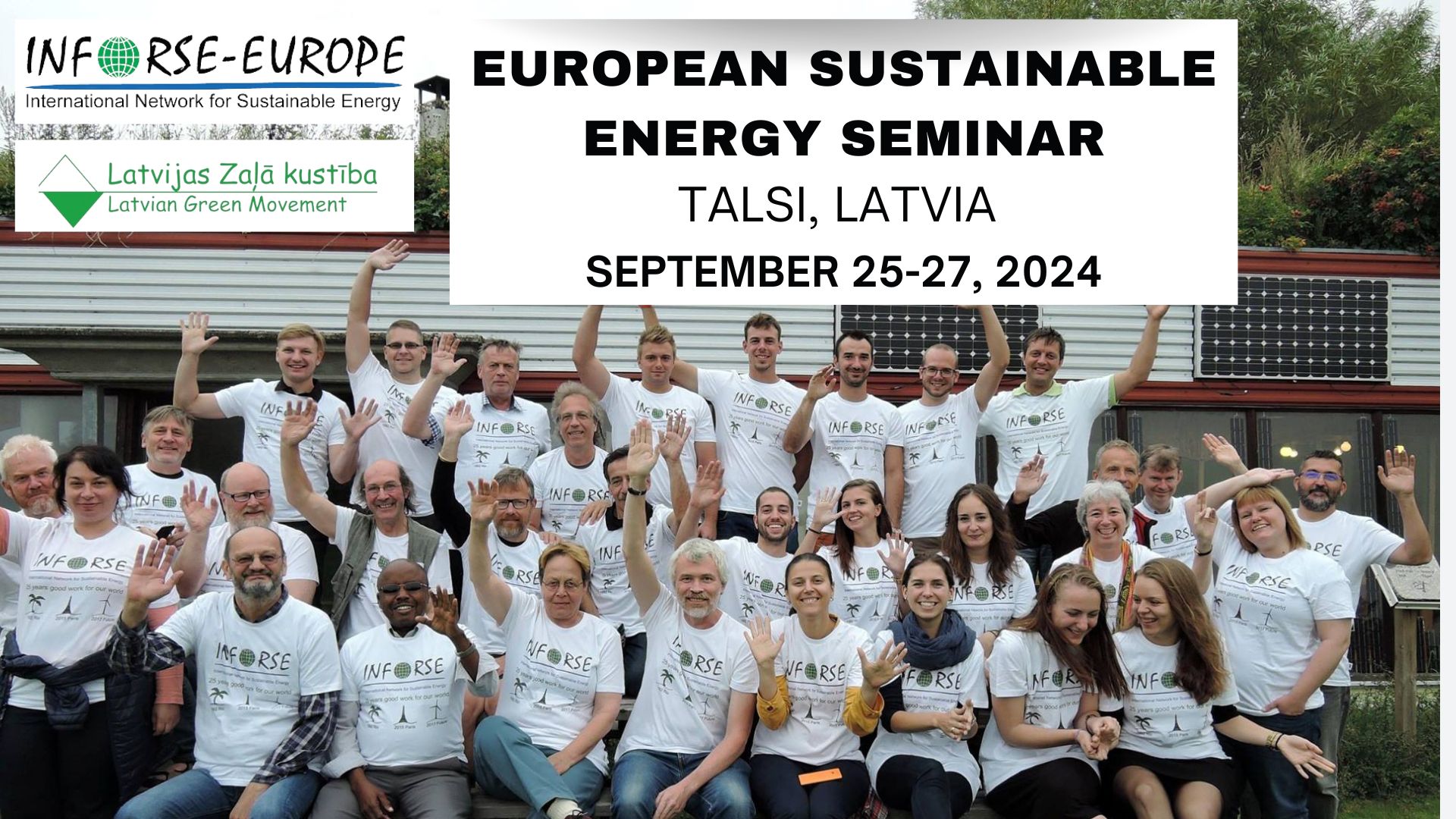 |
• September
25-27, 2024 (in Latvia & partially
online) INFORSE-Europe Sustainable Energy Seminar, Talsi, Latvia together with General Meeting. INFORSE-Europe is organizing an NGO sustainable energy seminar in cooperation with Latvian Green Movement. We focus on how civil society can push forward climate action with transition to 100% renewable energy, sufficiency/sustainable lifestyles, the best mitigation measures, and much more. Read more: Seminar 2024 (proceedings is available) Download: Program (pdf) More at Facebook |
|||||||||||||||
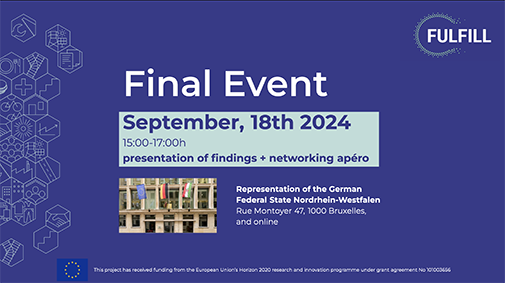 |
• September
18, 2024, 15.00-17.00 Final FULFILL Conference in Brussels & online Join and Read more: FULFILL Final Event Call and Memories from the Final Event incl. pictures and slides of presentations. (Earlier link: registration form) Direct Download: Presentations' slides (pdf 17 MB) Download: Final FULFILL Infogrpahics on Sufficiency (5 MB pdf file) Read Publications of the Project at FULFILL web site under "our research" |
|||||||||||||||
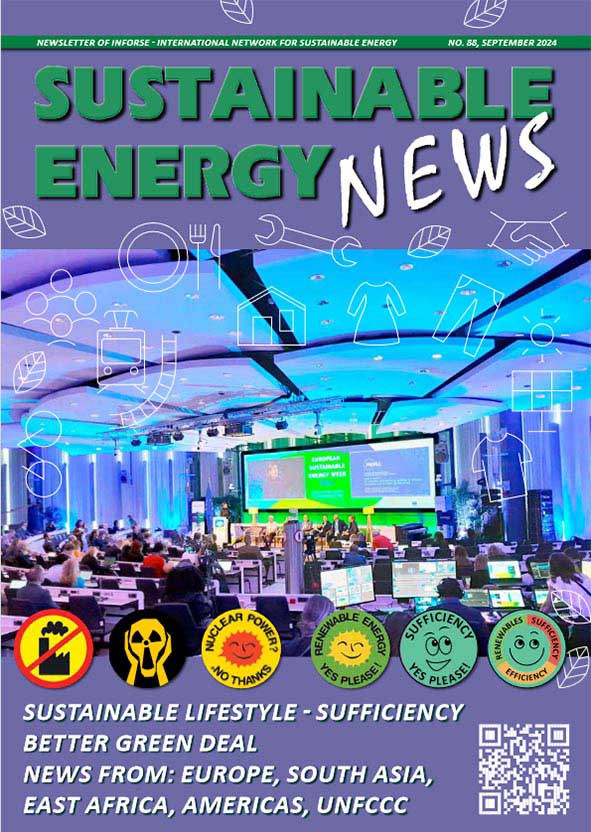 |
• September
2024 Sustainable Energy News No. 88 4-page article on the FULFILL Project's research results on Sustainable Lifestyle - Sufficiency Download: SEN 88 ( |
|||||||||||||||
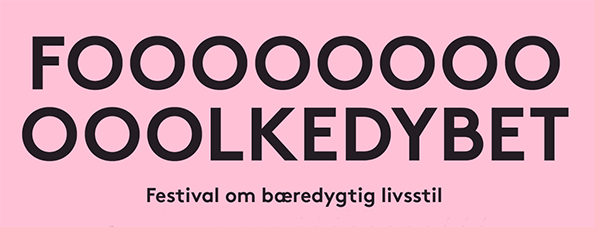 |
• September
13-14, 2024 Folkedybet Festival on Sustainable Lifestyle - Strandengen, Samsø, Denmark September 13, 2024, kl. 14.30 • Cirkustelt (in Danish) Denmark's and EU's role in sustainable lifestyle. / Danmark og EU’s rolle i det bæredygtige liv. Hvordan kan en bæredygtig livsstil se ud for at vi har lyst til at leve i den og hvordan kan vi med lokale initiativer bane vejen? Præsentation af ny viden og debat med en række bæredygtigheds initiativer - reultaterne fra EU Horison Projektet FULFILL, ved Gunnar Boye Olesen, INFORSE-Europe. Read more: Full Program: Folkedybet 2024 - Samsø Ennergiakademiet |
|||||||||||||||
• June,
2024 |
||||||||||||||||
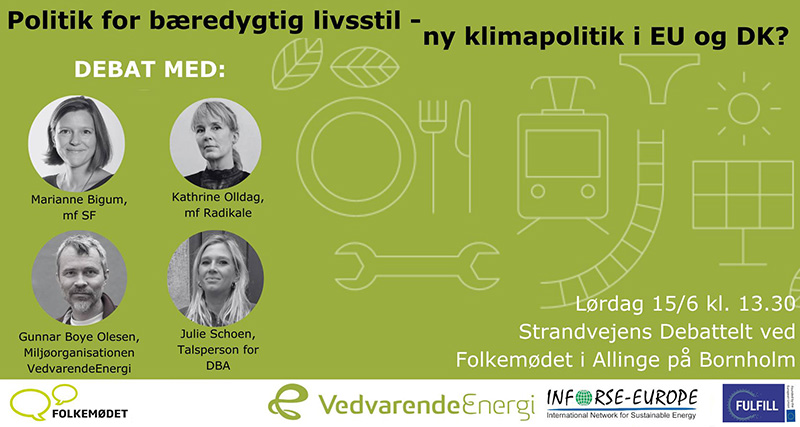 |
• June
15, 2024, 13.30 Sustainable lifestyle - New climate policy in the EU and Denmark Strandvejen's Debate Tent at Folkemèdet, Allinge, Bornholm How do we translate the need for sustainable lifestyles into political climate solutions? - Gunnar Boye Olesen, Policy Coordinator for RenewableEnergy, INFORSE-Europe and researcher in sustainable lifestyle policy at the EU Horizon2020 FULFILL Project. - Marianne Bigum, Member of Parliament for SF. - Kathrine Olldag, chairperson of the climate and environmental organization VedvarendeEnergi, political director of the industry association Cirkulær and former MF for Radikale. - Julie Schoen, spokesperson, Den BlÕ Avis. The event is financially supported by the Europa-Nævnet, and the EU Horizon FULFILL project. Read more: FULFILL project and Danish events by INFORSE about the EU (in danish) |
|||||||||||||||
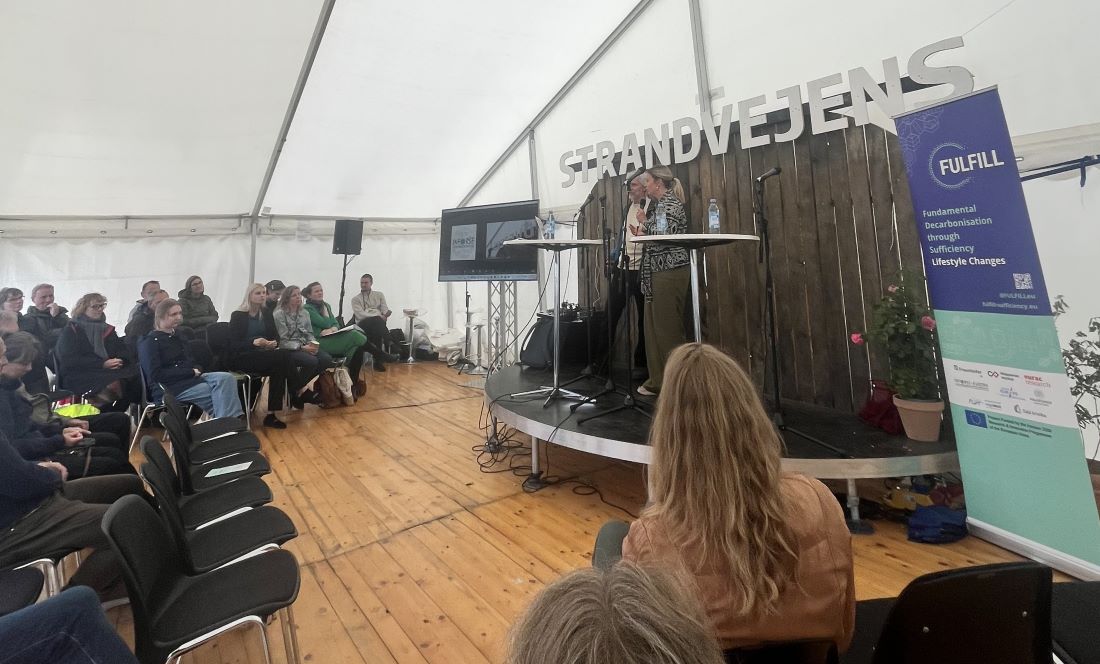 |
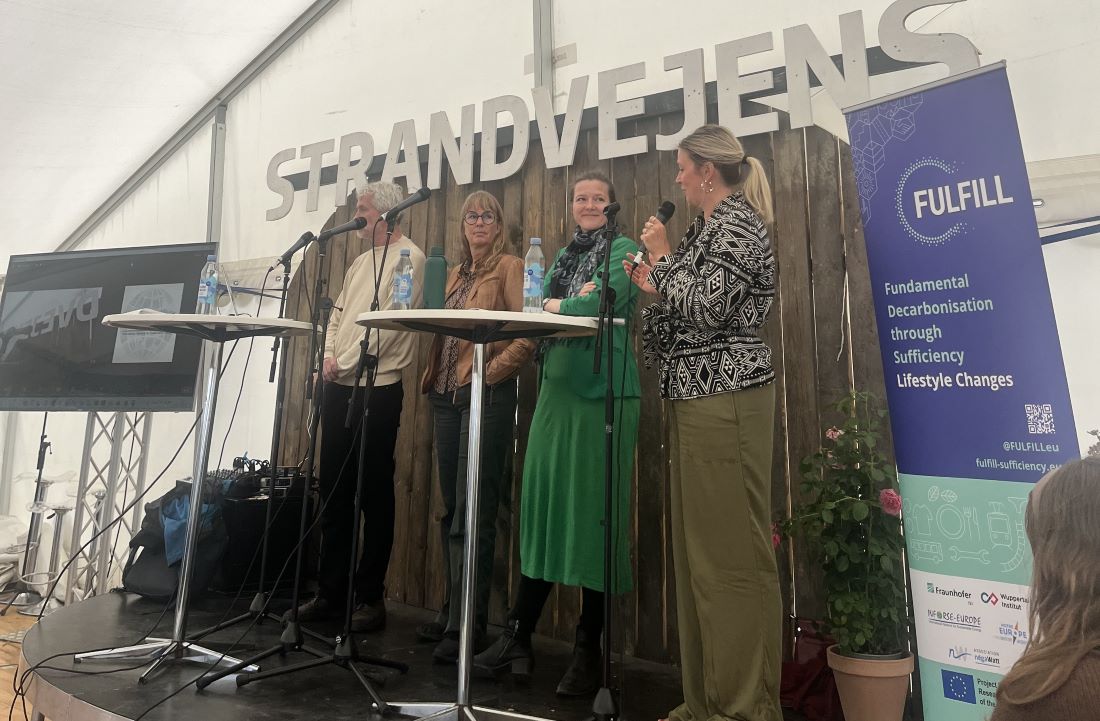 |
|||||||||||||||
|
• June
11-13, 2024 -
EUSEW 2024, Exhibition, Brussels, Belgium |
|||||||||||||||
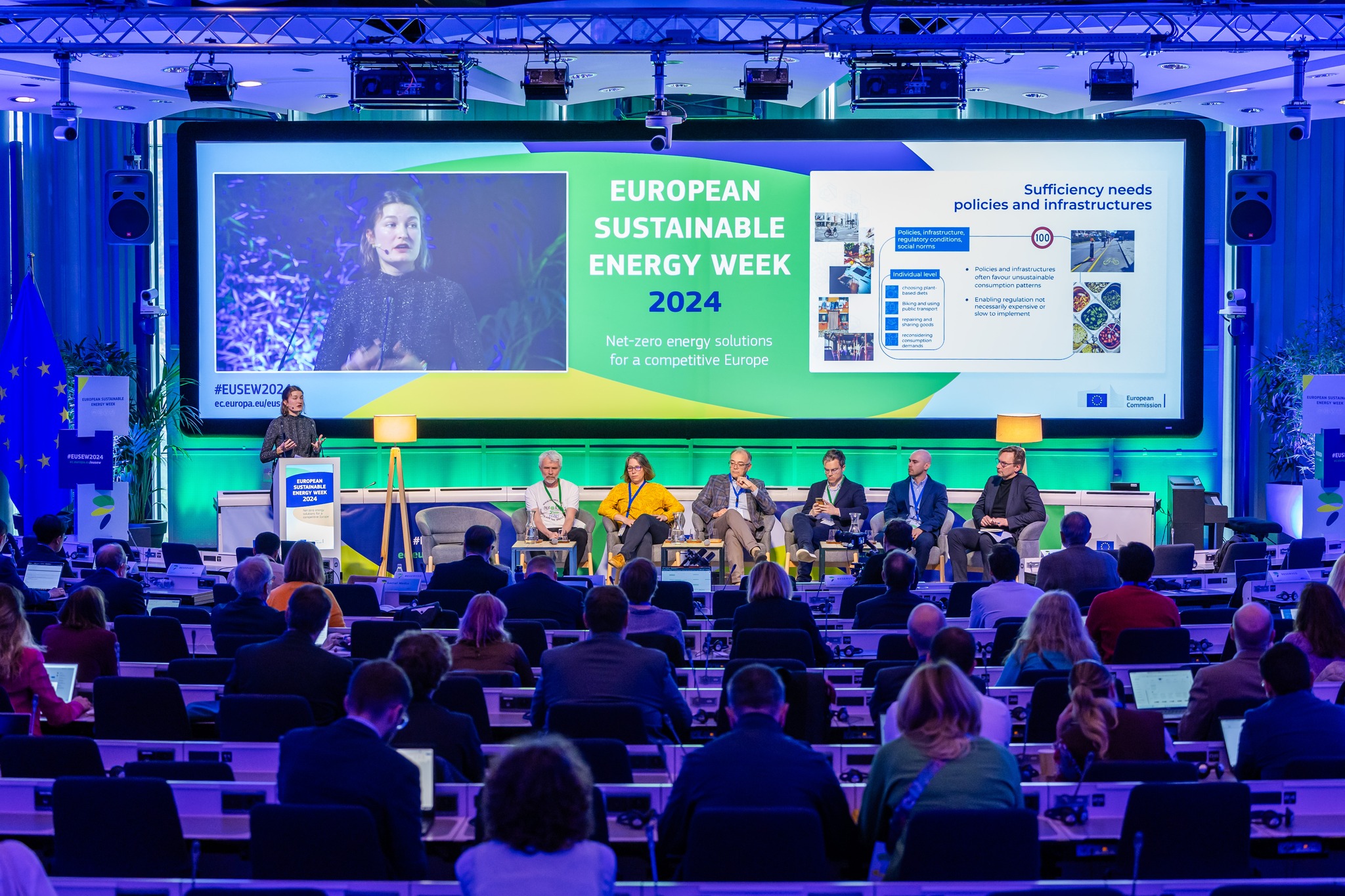 |
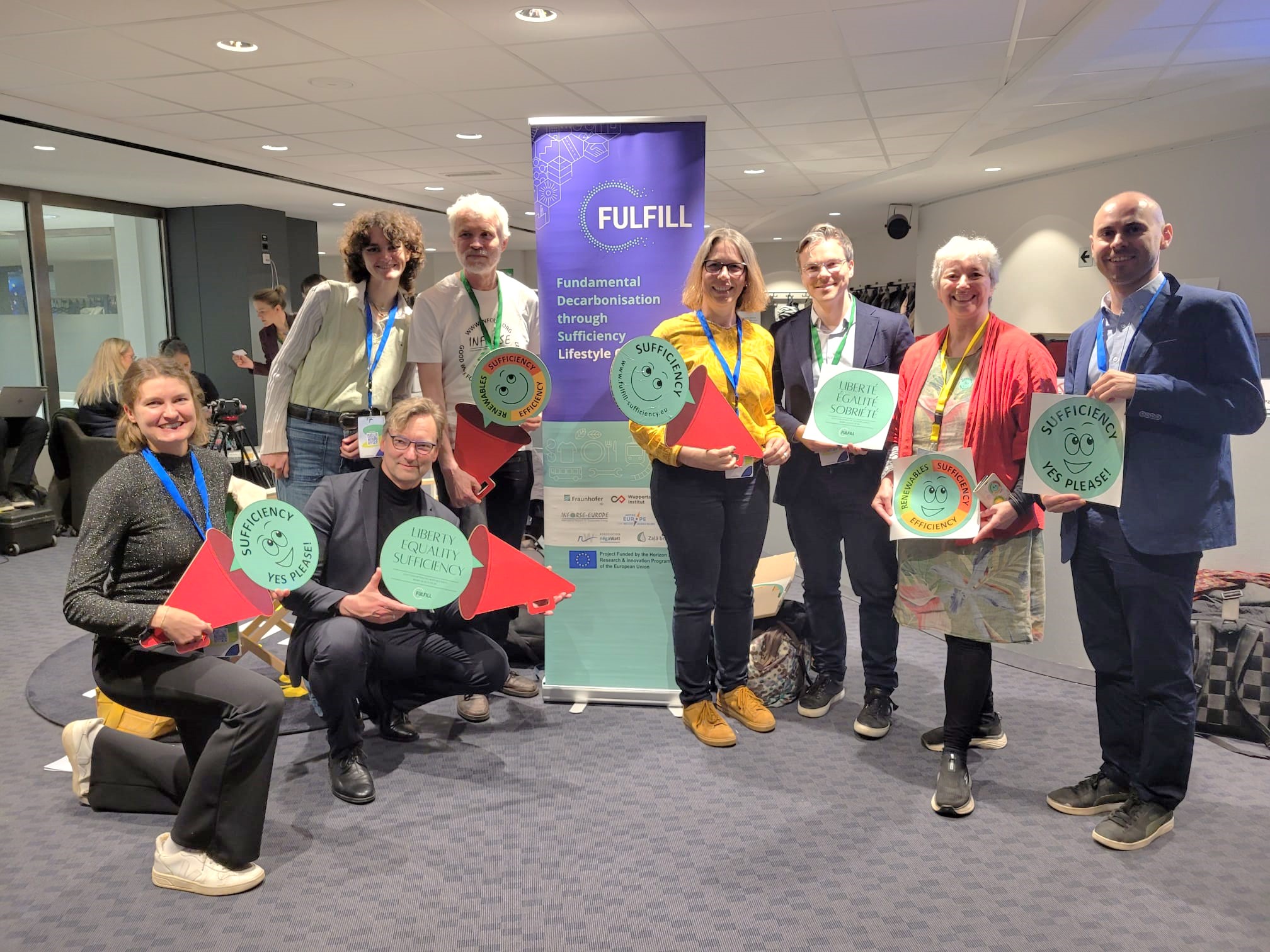 |
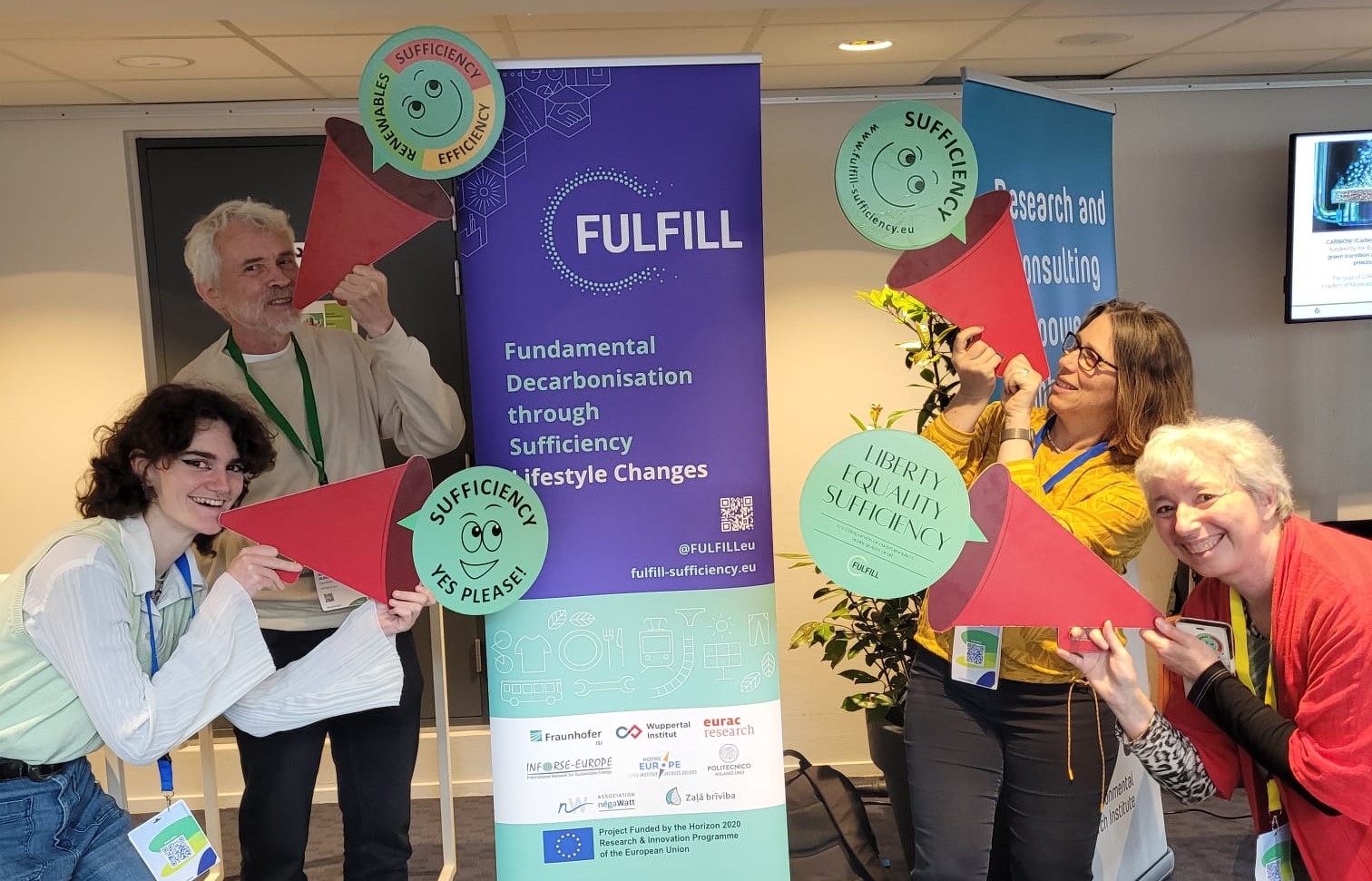 |
||||||||||||||
|
Read: Program (pdf). Presentations are available at INFORSE at SB60 and at UNFCCC SB60 Side Events |
|||||||||||||||
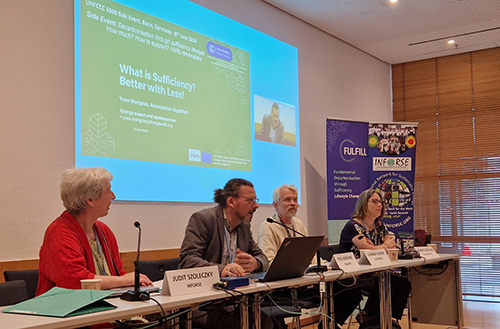 |
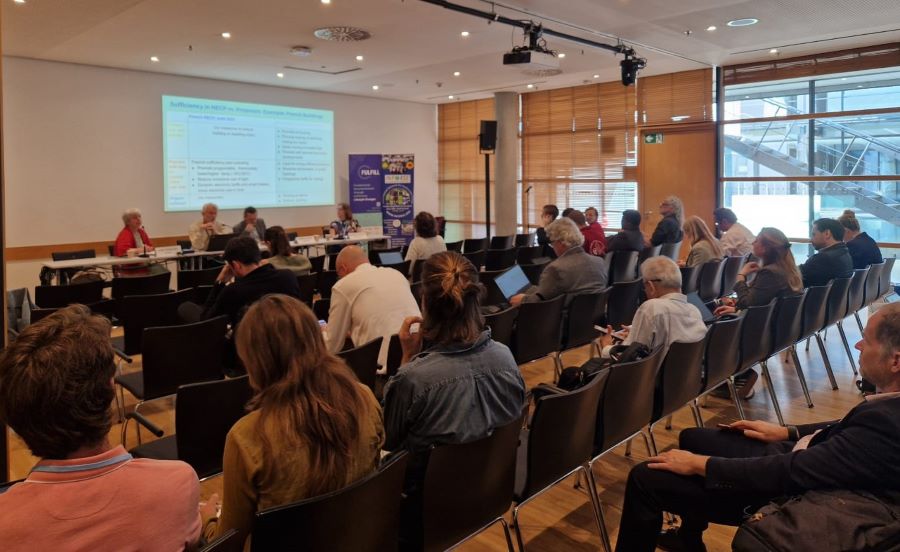 |
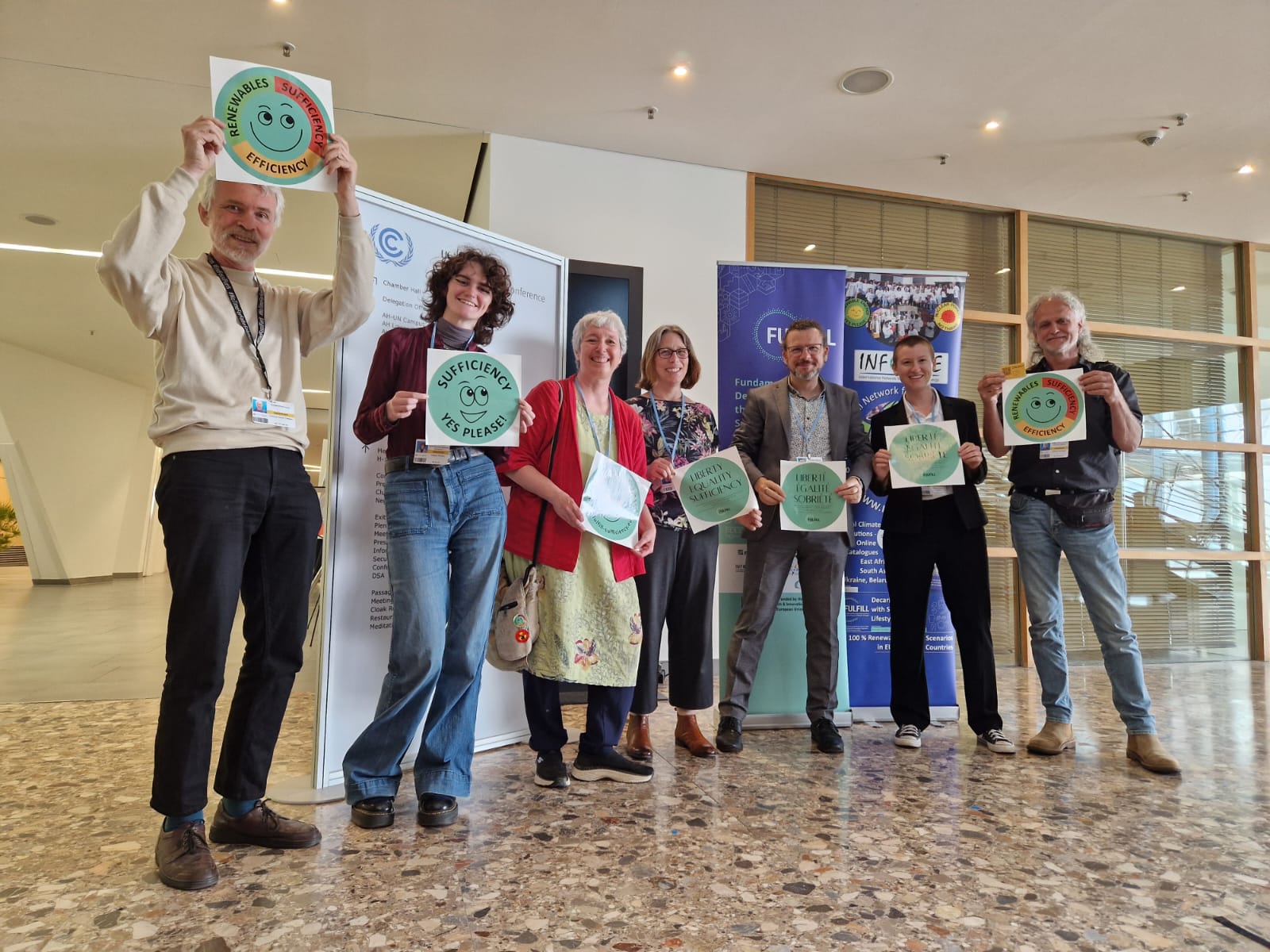 |
||||||||||||||
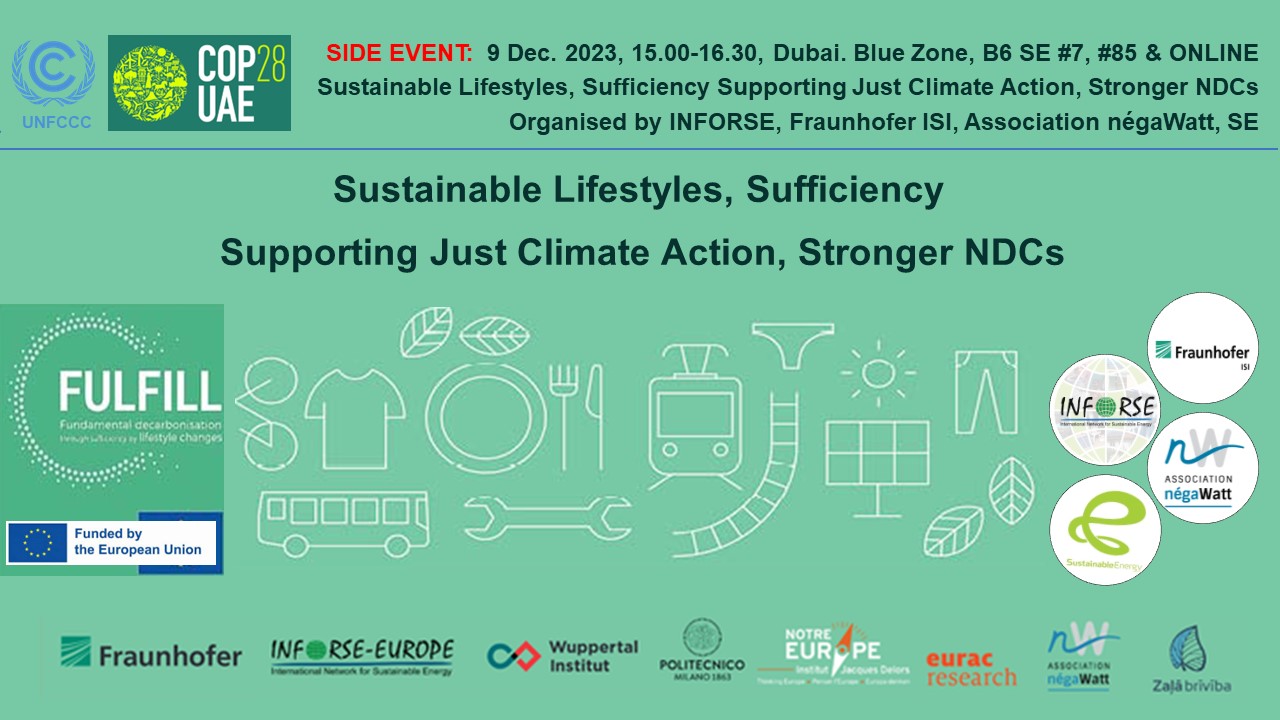 |
UNFCCC COP28, Dubai, UAE SIDE EVENT IN THE BLUE ZONE Saturday, 9 December 2023, Time: 15:00-16:30, Room: SE Room 7 & ONLINE Title: Sustainable Lifestyles, Sufficiency Supporting Just Climate Action, Stronger NDCs Sustainable lifestyles, sufficiency, can help reducing emissions in high-emission countries with affluent lifestyles. Policies supporting these should be included in the GST and new NDCs. New European research shows the specific sufficiency actions and policies that can make the difference. Organised by INFORSE, Association negaWatt, France; Fraunhofer Institute for Systems and Innovation Research - FhG ISI, Germany; Sustainable Energy, Denmark. Read: Program (pdf) and the Proceedings at INFORSE at COP28 including ONLINE Link. |
|||||||||||||||
• November
23-24, 2023 |
||||||||||||||||
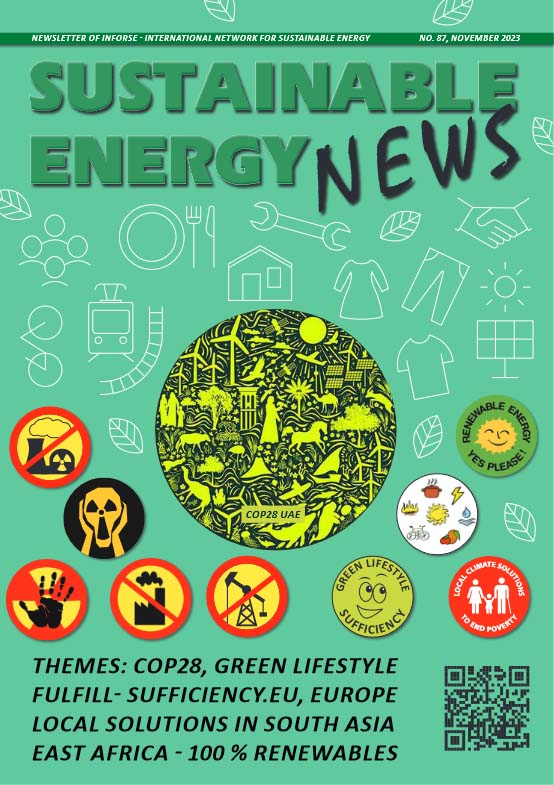 |
• November
2023 Sustainable Energy News No. 87 4-page article on the FULFILL Project's research results on Sustainable Lifestyle - Sufficiency Download: SEN 87 ( |
|||||||||||||||
 |
UNFCCC SB58 Side Event, Bonn, Germany. Title: Sustainable lifestyles for climate action and policies for ALL Organised by INFORSE, Fraunhofer Institute, REScoop.eu and SE. Download Program (pdf), and link to Proceedings. |
|||||||||||||||
| • 1 June,
2023 - FULFILL Webinar in Denmark (in Danish) Sustainable Citizens' Initiatives Venue: Permatopia & online Download: - Power point presentation (pdf) (in Danish) - Invitation to workshop (in Danish) - Policy Brief with recomendations to municipalities by FULFILL Project (English) |
||||||||||||||||
| • What
is Sufficiency? Literature Review on Sufficiency Download the Literature review from the FULFLILL Project's website |
||||||||||||||||
• November, 2022 - FULFILL Project Meeting, Institute of Jacques Delors, Paris, France |
||||||||||||||||
• 2
September, 2022 - Workshop about sustainable initiatives and
their work
with local administrations, in Middelfart, Denmark.
|
||||||||||||||||
• August
- October, 2022: Gathering data in all five countries.
|
||||||||||||||||
|
• February - March, 2022: Launch of WEB SITE of the Project: fulfill-sufficiency.eu • January 2022: Launch of the Twitter of the Project: twitter.com/fulfilleu |
||||||||||||||||
|
• October, 2021: Kick Off Meeting in Karlsruhe, Germany. |
||||||||||||||||
• April 2021: First Project Meeting (Virtual) |
||||||||||||||||
|
||||||||||||||||

